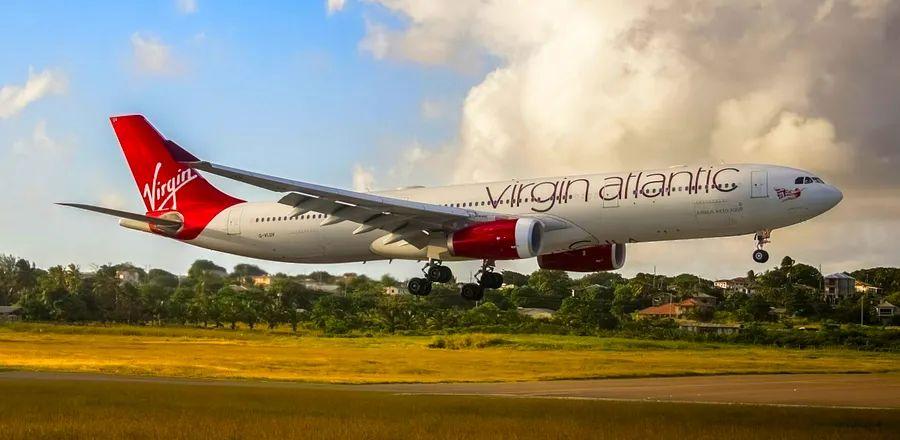Airlines Are Introducing New “Eco Fees” for Flights: What This Means for Ticket Prices

Not too long ago, airlines would impose “fuel surcharges” whenever jet fuel prices surged. Unfortunately, these unpopular fees often remained even after fuel costs decreased. The term fell out of use over a decade ago after U.S. regulators mandated that airlines clarify how they determined specific fees like fuel surcharges. Many airlines opted to eliminate the term altogether.
Fast forward to 2024: The emergence of airline “eco fees,” which are linked to the use of sustainable aviation fuel (SAF) made from cooking oil, is gaining traction, especially in Europe. This shift is partially driven by some countries requiring airlines to reduce their carbon emissions. While some travelers may appreciate the intention behind these fees, ultimately, it still means paying more to support our flights’ energy needs.
According to travel expert Gary Leff, who writes the blog View from the Wing, airlines view government regulations, international pressure, and their own lobbying efforts to prevent stricter rules as factors pushing them toward non-fossil fuel energy mandates. However, he notes that prices are determined by supply and demand, stating, “Labeling part of the fare as a ‘green fee’ is primarily a marketing strategy.”
Virgin Atlantic is the latest airline to introduce this fee, recently announcing plans to implement a green fee on certain flights to fund the shift to SAF. The airline intends to gradually introduce these charges over the next 18 months, aiming for full implementation by 2030.
“Ticket prices will inevitably rise to reflect the increased costs of using SAF in larger quantities,” stated Shai Weiss, CEO of Virgin, regarding the airline’s decision. SAF is estimated to cost three times more than the kerosene currently used by most airlines. Last fall, Virgin highlighted this issue by operating the first-ever commercial transatlantic flight entirely powered by SAF. While Virgin hasn’t disclosed the exact amount for the new green surcharge, reports suggest it could be as high as 40 British pounds per ticket, or approximately US$52 at current exchange rates.
The urgency to reduce carbon emissions in air travel is intensifying. The International Air Transport Association (IATA) has set a target of achieving zero-carbon emissions by 2050. While most major international airlines express commitment to this goal, few have directly charged passengers for related green initiatives, with some exceptions.
One such exception is the Lufthansa Group, which introduced green fares in 2023. These are optional fare types booked separately, not added to existing reservations. Recently, the company announced that over 1 million passengers have opted for these fares, which still represent only 3 percent of total passengers flying with the group, including Austrian, Brussels, and Swiss airlines. The group expanded these fares to selected long-haul flights last November.
Donald Bunkenburg, senior sales director for the central U.S. at Lufthansa, informed Dinogo that the green fares are partially driven by a European Union mandate requiring aviation fuel at EU airports to contain at least 2 percent SAF by 2025, with incremental increases until it reaches 70 percent by 2050. However, he noted that the initiative also responds to individual passengers wanting to contribute to sustainability efforts through SAF purchases and other environmental projects.
In compliance with the EU regulation, the German airline has also announced plans to implement mandatory SAF-related fees on flights within Europe. The surcharge, which could reach up to 72 euros per ticket (about US$80), will vary based on flight length and ticket price and is set to take effect on January 1, 2025.
Air France has already implemented a “SAF contribution” fee starting at 4 euros for economy class passengers on flights leaving France.
Several European airlines have introduced fares like SAS’s optional “bio” fares, allowing customers to purchase a supply of SAF specifically for their flight, mainly applicable to domestic and European routes. The challenge stems from European governments pushing a more accelerated timeline compared to the IATA or the European Union. For instance, the British government is mandating that 10 percent of all jet fuel for departing flights must be SAF by 2030.
Other airlines have opted to offer passengers the option to pay for carbon offsets, which has gained popularity in the U.S. However, airlines, like many industries, face accusations of “greenwashing,” leading to skepticism about whether new or additional fees genuinely contribute to climate action.
Airlines are also grappling with a broader issue: green fatigue. Studies indicate a backlash against corporate sustainability initiatives, especially when they entail extra costs for customers. This reluctance has led to the emergence of a new term: “greenhushing.”
As this is an election year, the future of green air fares in the United States remains uncertain. According to Leff from View from the Wing, “In the U.S., airlines are hoping for federal subsidies for cleaner fuels,” adding that “the election outcome could significantly impact this.”

1

2

3

4

5
Evaluation :
5/5